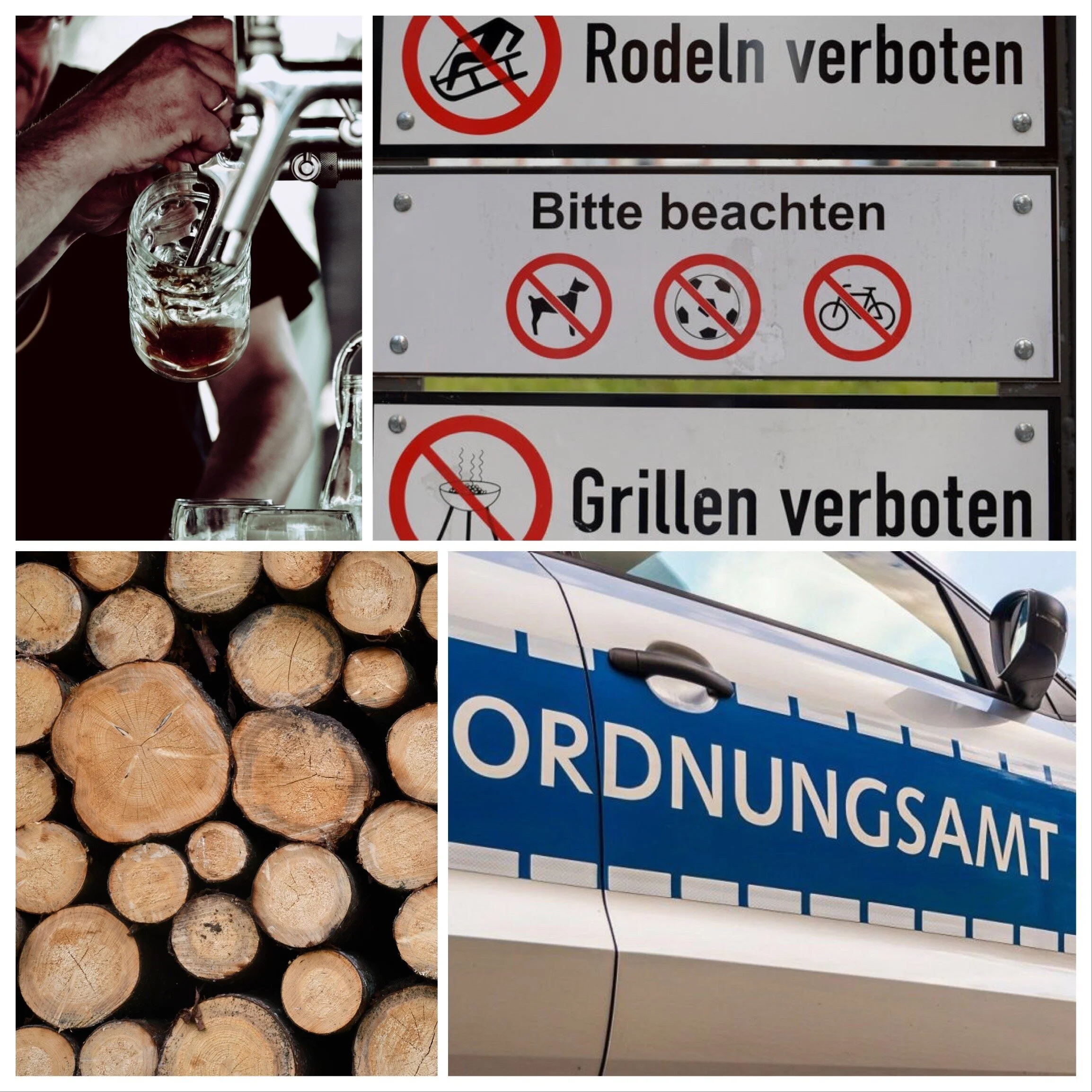Clarity and the Germans: Ja oder Nein?
For many reasons, Germany has gained a reputation as a land of order and regulation. When many German states have a literal Office of Order or Ordnungsbehörde, it’s hard to deny this characterisation. These regional government departments are tasked with strictly enforcing a wide variety of regulations from gambling to play parks, while enforcing more serious laws often controlled in other countries by the police. The sense of order is enhanced by the regulation of the seemingly mundane such as crossing the road, DIY on Sundays and even washing a car. Although sometimes obscure, these seemingly odd or unnecessary rules often have clear logic to them as well as hefty fines for any transgressors. Whether it’s the fear of the fines or because Germans are preordained lovers of order, it does often feel like people here know the rules and are happy to stick to them. This adherence to order and rule following can often spark ridicule, especially from English speaking countries like Britain and the USA, where rule breakers or alternative thinking is often seen as the mark of genius. “Bending the rules” is smart, whereas following a mantra of “rules were made to be broken” can mark someone out as a maverick independent thinker, a disruptor. In Germany, mavericks and disruptors may find opportunity knocking but it’s just as likely to be the Ordnungsamt.
The regulation and order of daily life may seem excessive at first, but with it comes a clarity and to a certain extent comfort. It seems that Germans find a freedom within the rules, rather than feeling themselves confined by them. This feeling of freedom defined by regulation is best encapsulated in Germany’s most famous law, the Reinheitsgebot (Beer Purity Law) that dates to 1516. The idea that beer can only be made with specific ingredients may seem restrictive, as some German brewers have argued, but within the law itself can be found a massive variety. The ingredients may stay the same, but it hasn’t prevented the growth of regional variation.
As the Reinheitsgebot suggests, the desire for clarity through regulation is not a modern phenomenon and nor is it confined to beer and noise control. Clarity is also the central feature of German communication. I’ve always been impressed with the German comfort with saying “No” or more accurately “Nein” without fear of upsetting anyone. This might seem frivolous, but coming from Britain, the word “No” is avoided at all costs. The British have come up with a myriad of responses that suggest “No” without ever having to say the word. The British will say things like “I’ll see what I can do” or “I’ll get back to you”, they’ll suggest “Another time might work” or “We’ll see” but invariably whatever was being planned or whatever was hoped for will not materialise. The closest most British people might get is “Naaa” or “Nope” but the idea of simply saying “No” seems beyond acceptability. The British preference appears to be communication via layers of meaning, and a belief that some things are “better off unsaid”. German communication, however, seeks clarity and honesty that leads to a directness of speech.
Clearly these two cultural communication styles conflict and it’s no surprise when they do, especially in business. I’ve been told on more than one occasion that the Germans are too abrupt and overly harsh with their criticism. The British, in return, obfuscate and take too long to get to the point. Of course, it helps if both sides take the time to understand the communication aims of the other. The British generally like to maintain an air of geniality, a sense that things are going well, even when things are clearly failing. The closest the British might get is an indirect or understated criticism. Germans, however, prefer to focus on resolving issues with direct, honest assessment, part of which is saying specifically what they think is going wrong. This is often motivated by a discomfort with uncertainty and a desire to plan in the long-term. Both communication styles have their benefits, but resolution via honest assessment and creating a friendly working atmosphere are difficult to juggle simultaneously.
The British and many others in the English-speaking community, focus on positive atmosphere rather than clarity. This has created, if not a comfort, then an expectation of ambiguity, especially within social interactions. For instance, paying the bill at the end of dinner. More often than not, this is a decision made after eating, whereas in Germany it’s often made very clear from the beginning who is expected to pay. The first time I went for dinner with my management team, my boss turned to me and simply said “Remember Nic, you are invited”. I was quite confused about this, I’d read the email and spoke to him on the phone, I knew he had invited me, there was really no need for him to keep telling me. Throughout the dinner, he would periodically remind me that he was the one who had invited me, to the point that I began to think I had done something to offend him. My table manners leave a lot to be desired, but I was sure that I had followed most of the basics. It was not until the end of the meal, when I reached for my wallet and the inevitable discussion about how to split the bill, that he looked me square in the eye and said “I said you are invited, that means I’m paying”. In seconds it all became clear; he wanted me to feel free to order anything I wanted, since it was on him. I kicked myself for not picking this up earlier and also for not ordering steak and champagne.
It’s interesting to think that what might be perceived as rude in communication or as excessive “red tape” by the British and the English-speaking world are actually quite central aspects of German life. It’s no surprise to learn that the term “Nanny state” hasn’t gained much traction here, whereas in Britain it has become a big complaint among tabloids and is seen as restrictive or unnecessary meddling by politicians. In Germany there is a common saying “Order muss sein” (order must be), which I instinctively recoiled at on first hearing, but I’ve slowly come to respect and more often than not, rely on.








